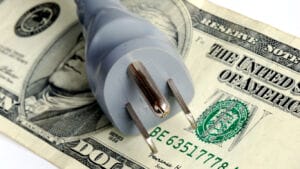Keeping a pool safe and sparkling is not just about adding chlorine and skimming leaves. Overlooking the basics can lead to health hazards, expensive repairs, and even facility shutdowns. Clean water might look inviting, but what’s lurking beneath the surface is only revealed through consistent inspection and upkeep.
In such scenarios, commercial pool maintenance resources become an essential part of pool maintenance. These tools, services, and trained professionals ensure every filter, chemical level, and pump is running as it should. Neglect invites bacterial growth, equipment failure, and reputational damage. This article will explain why cleaning and inspections aren’t optional and are absolutely critical.
Health Risks Multiply Without Regular Cleaning
Standing water is a breeding ground for harmful microbes. Bacteria like E. coli and Pseudomonas can thrive in neglected water, leading to rashes, ear infections, and worse. Proper maintenance destroys these organisms before they spread. Chlorine alone isn’t enough if filters are clogged or circulation is poor.
Pool water needs balance, too acidic, and it irritates the skin; too basic, and it loses sanitizing power. Weekly testing and treatment are key to keeping these factors in check. Cleaning the walls, floors, and skimmers eliminates biofilm buildup, which can harbor pathogens even when the water looks clear.
LEARN MORE: Rediscover Tempe with your best summer staycation yet
SUMMER FUN: 7 new and noteworthy Tempe restaurants to visit this summer
Inspections Catch Problems Before They Spread
Routine checks uncover small issues before they explode into major ones. A slow leak, cracked tile, or worn seal might seem minor today but could cost thousands tomorrow. Regular inspections of pool equipment, filters, pumps, and heaters prevent breakdowns that halt operations. Using pool maintenance resources, facility managers can track inspection schedules, log repairs, and stay ahead of required updates.
Equipment Lasts Longer With Preventive Measures
Pool systems work hard every day. Pumps push thousands of gallons through filters, heaters adjust temperatures, and chemical feeders maintain proper balance. Without regular cleaning, debris can clog parts and force them to overwork. Replacing a pump or heater is costly, but simple upkeep extends their service life. Backwashing filters, lubricating O-rings, and flushing lines reduce wear and tear. Maintenance routines reduce stress on the system and lower energy use, too.
Compliance Isn’t Optional, It’s Mandatory
Most jurisdictions require commercial pools to meet strict health codes. These include maintaining clean surfaces, safe chemical levels, and functioning equipment. Failing an inspection could lead to citations or even closure. Staying compliant means following a strict cleaning schedule and keeping detailed records. Inspectors want to see consistent maintenance logs and evidence that safety checks are routine.
Customer Satisfaction Depends on Cleanliness
Guests notice the water quality immediately. Cloudy water, strong chlorine smells, or visible debris can ruin the experience. A well-maintained pool invites people in; it signals safety, professionalism, and care. Satisfied users are more likely to return, leave positive reviews, and recommend the facility. A poorly maintained pool, on the other hand, sends the opposite message. Even one negative encounter can damage the reputation a business has spent years building.
Key Cleaning Zones That Demand Extra Attention
Certain areas need extra attention during each cleaning round. These aren’t just decorative; they prevent deeper issues:
- Tile lines, where oils and residues accumulate
- Skimmers and baskets, which catch debris but clog easily
- Drain covers are mostly missed but are vital to circulation
- Locker room floors and showers to prevent mold
- Pool decks, which can develop slippery algae if ignored
Daily cleaning of these high-traffic spots keeps the entire facility healthier and safer for guests and staff alike.
Staff Training is Just as Important as Equipment
Even the top tools are useless in the wrong hands. Staff must be trained to recognize signs of chemical imbalance, equipment issues, and structural wear. Basic certification courses can equip them with what’s needed to manage common issues confidently. Routine training ensures everyone knows how to perform tests, interpret results, and log them correctly. It also empowers staff to respond quickly if something goes wrong, like a chemical spill or equipment failure, before it escalates.
Seasonal Maintenance Helps Prevent Downtime
Between summer surges and off-peak months, pool usage shifts. Seasonal maintenance helps facilities transition smoothly. Winterizing systems, adjusting chemical dosages for temperature changes, and inspecting off-season wear to ensure the pool reopens and is ready to use.
Waiting until peak season to start maintenance leads to delays. Planning ahead reduces the chance of major repairs or last-minute surprises. Seasonal upkeep ensures the pool meets safety standards every time it reopens.
Acquiring commercial pool maintenance resources provides the backbone for safe, clean, and compliant pool operations. Be it catching early signs of wear, keeping the water healthy, or meeting inspection requirements, routine cleaning and checks can’t be pushed aside. They’re essential to every facility that takes its responsibility seriously. A clean, safe pool is more than an amenity; it’s a promise kept.




